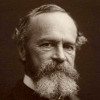“ knowledge is not integrated into the usual springs of action and the outlook on life, while morals become moralistic—a scheme of separate virtues. ”
John Dewey, Democracy and Education (1916). copy citation
| Author | John Dewey |
|---|---|
| Source | Democracy and Education |
| Topic | action virtue |
| Date | 1916 |
| Language | English |
| Reference | |
| Note | |
| Weblink | http://www.gutenberg.org/files/852/852-h/852-h.htm |
Context
“For unless the learning which accrues in the regular course of study affects character, it is futile to conceive the moral end as the unifying and culminating end of education. When there is no intimate organic connection between the methods and materials of knowledge and moral growth, particular lessons and modes of discipline have to be resorted to: knowledge is not integrated into the usual springs of action and the outlook on life, while morals become moralistic—a scheme of separate virtues.
The two theories chiefly associated with the separation of learning from activity, and hence from morals, are those which cut off inner disposition and motive—the conscious personal factor—and deeds as purely physical and outer;”
source


